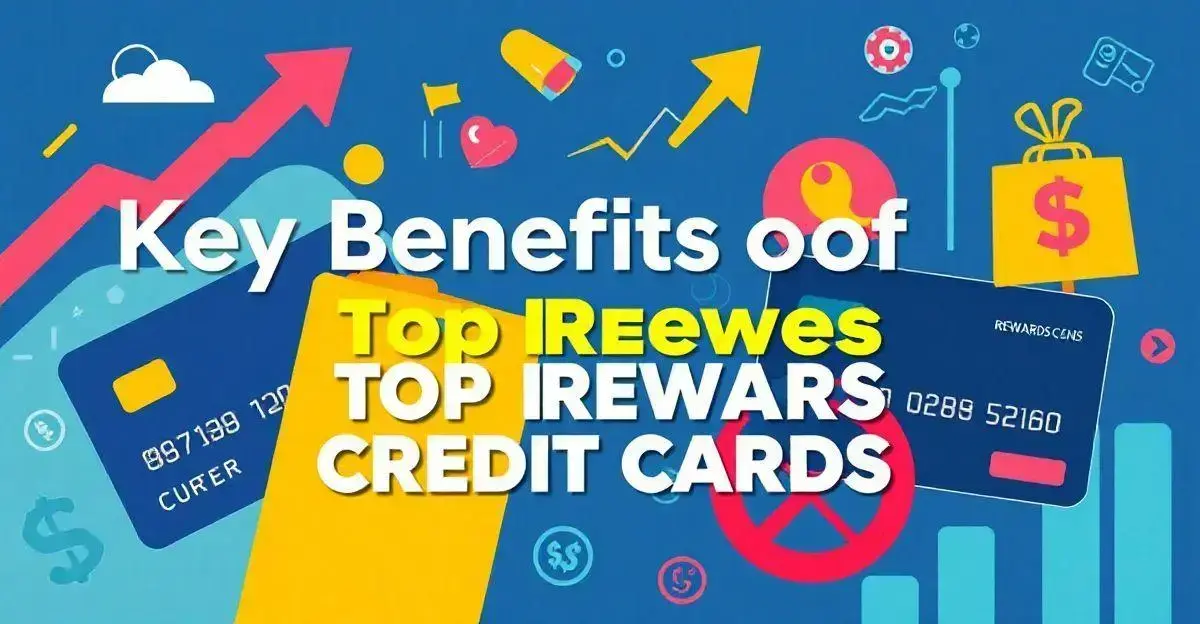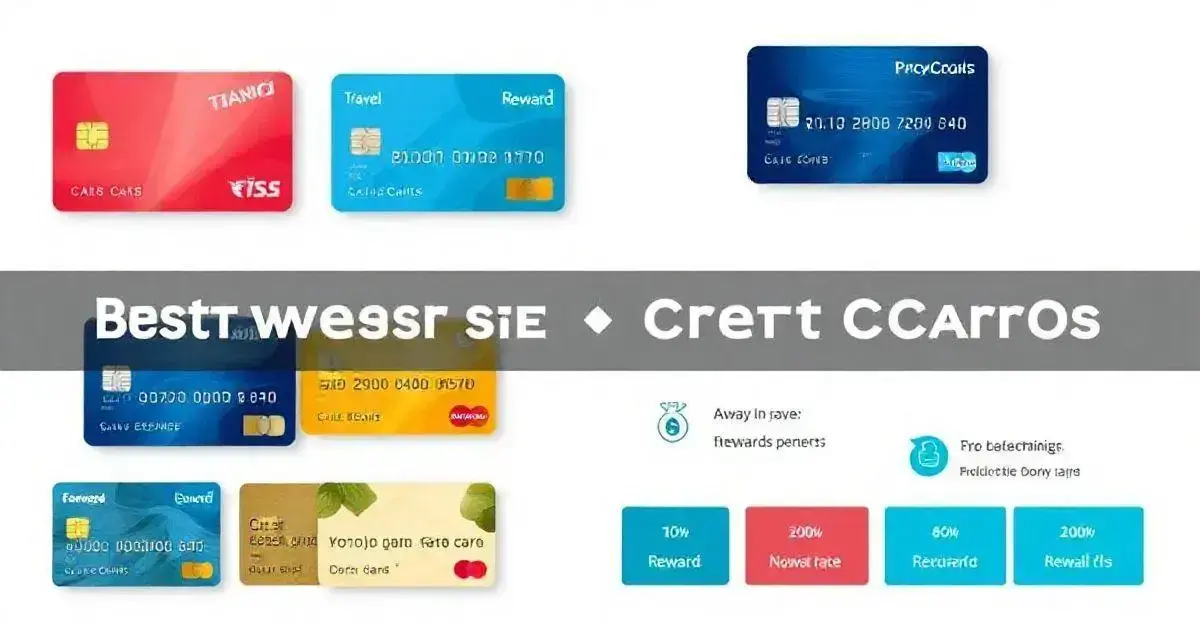Top rewards credit cards can significantly enhance your financial strategy, providing you with opportunities to earn valuable points, miles, and cashback.
In a world where every dollar counts, choosing the right rewards credit card becomes essential.
Understanding Rewards Credit Cards
Understanding rewards credit cards is the first step to maximizing your spending power. Unlike traditional credit cards, rewards cards offer points, miles, or cash back for every purchase. These rewards can enhance your travel experiences, provide discounts on purchases, and help with everyday expenses.
When selecting a rewards credit card, consider the types of rewards that align with your lifestyle. For example, if you travel frequently, a card that offers airline miles or hotel points may be advantageous. If you prefer cash back, look for cards that provide a percentage of your purchases back.
Additionally, pay attention to factors such as annual fees, interest rates, and sign-up bonuses. Some cards offer lucrative bonuses if you spend a certain amount within the first few months, significantly boosting your overall rewards.
To maximize your rewards, use your card for everyday purchases—like groceries, gas, and online shopping. The key is to spend wisely and pay off your balance each month to avoid interest charges that can negate your rewards.
Finally, stay informed about any changes to rewards programs, as these can impact how you earn and redeem rewards. With careful planning and a clear understanding of how rewards cards work, you can transform your spending into benefits that work for you.
Key Benefits of Top Rewards Credit Cards

Key benefits of top rewards credit cards can transform the way you manage your finances. These cards allow you to earn rewards for every purchase you make, whether it’s for groceries or travel expenses. By leveraging these rewards, you can save money, redeem points for travel, and enjoy exclusive offers.
One major benefit is the potential for cash back. Many rewards cards offer a percentage of your spending back in cash, which can be particularly appealing for everyday purchases. This cash back can add up over time and provide you with occasional financial boosts.
Additionally, points and miles won through these cards can be redeemed for travel, accommodations, and experiences. If you are a frequent traveler, consider using a card that specializes in travel rewards. This could lead to free flights or significant discounts on hotels.
Another key advantage is access to special perks. Many rewards cards come with added benefits such as travel insurance, purchase protection, and extended warranties. These features provide extra security for your purchases and travel plans.
Moreover, some cards offer sign-up bonuses that can greatly enhance your reward accumulation early on. By meeting the minimum spend requirements, you can quickly boost your rewards balance, making it easier to enjoy the benefits sooner rather than later.
In summary, understanding these benefits can help you choose the right card and maximize your rewards, turning everyday spending into valuable perks.
How to Choose the Right Rewards Card
How to choose the right rewards card can seem daunting with so many options available. It is important to evaluate your spending habits and lifestyle before making a decision. Consider what type of rewards you value most—cash back, travel points, or other perks.
Start by analyzing where you spend the most money. If you usually buy groceries, look for cards that offer higher rewards in that category. Many cards provide bonus points for certain types of spending, making it easier to maximize your rewards potential.
Next, consider the fees associated with each card. While some offer fantastic rewards, they may come with high annual fees. Weigh the benefits of the rewards against the cost to ensure you are making a wise financial decision.
Furthermore, check if the card has a sign-up bonus. Many cards provide attractive bonuses if you spend a specific amount within the first few months, which can kickstart your rewards accumulation.
Don’t overlook interest rates, especially if you carry a balance. It’s essential to choose a card with a competitive interest rate to avoid paying more in interest than you earn in rewards.
Lastly, read customer reviews and ratings. Learning from others’ experiences can guide you in selecting the best card that aligns with your needs and preferences.
Comparing Popular Rewards Credit Cards

Comparing popular rewards credit cards is essential to finding the best option for your needs. With various cards offering unique benefits, understanding their differences can help you make an informed choice. Consider aspects such as rewards rates, benefits, and fees.
First, look at the rewards structure. Some cards offer a flat cash back rate, while others give higher rewards on specific categories like dining or travel. This can greatly influence how much you earn based on your spending habits.
Next, evaluate the annual fees. Many rewards cards come with fees that can offset the value of the rewards. Ensure that the benefits you receive outweigh the cost of the card.
Check if the card provides a sign-up bonus as well. Some cards offer significant bonuses if you meet a spending threshold, which can add substantial value initially.
Another factor to compare is redemption options. Some cards allow you to redeem points for travel, while others provide cash back or gift cards. Knowing how you want to use your rewards is crucial.
Finally, consider additional cardholder benefits like travel insurance, purchase protection, and concierge services. These features can enhance the overall value of a rewards card.
Common Misconceptions About Rewards Cards
Common misconceptions about rewards cards can lead to poor choices when it comes to managing your finances. Many people believe that all rewards cards charge high annual fees, but that’s not always true. There are plenty of options with no annual fee that still offer great rewards.
Another misconception is that you can only earn rewards on certain types of purchases. While some cards offer higher rewards in specific categories, most rewards cards allow you to earn points or cash back on every purchase.
Some users think rewards points expire quickly, but this varies by card. Many companies have made it easier to keep your points by extending expiration dates or allowing points to stay active as long as you use the card occasionally.
Additionally, a common belief is that it’s easy to redeem rewards. In reality, the process can vary greatly depending on the card. Some cards have flexible redemption options, while others may have complicated rules that make it hard to use your points effectively.
Lastly, many people assume that you must carry a balance to benefit from rewards cards, which is not the case. It’s best to pay your balance in full each month to avoid interest charges, allowing you to enjoy rewards without incurring debt.
Maximizing Rewards: Tips and Tricks

Seek out bonus categories for higher rewards.
Combine your rewards cards strategically.
Utilize sign-up bonuses fully.
Pay attention to expiry dates on rewards points.
Keep an eye on promotional offers.
Always pay off your balance in full each month.
Choosing the Right Rewards Card
Selecting the right rewards credit card can greatly enhance your financial experience. By understanding the various types of rewards, fees, and benefits, you can make an informed choice that aligns with your spending habits.
To maximize your rewards, focus on planning and smart spending. Analyze your typical purchases, seek out bonus categories, and take advantage of sign-up bonuses. This approach allows you to turn everyday expenses into valuable rewards.
Stay informed about any changes to your rewards program, as these can affect how you earn and redeem rewards. With these strategies in mind, you can fully enjoy the benefits of rewards credit cards and take advantage of the perks they offer.
